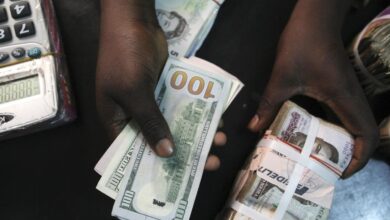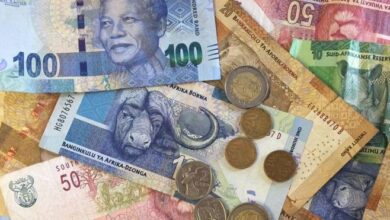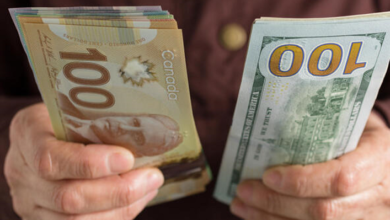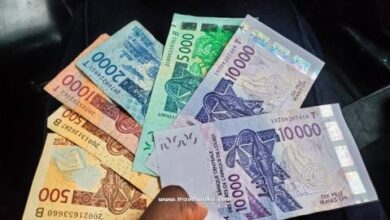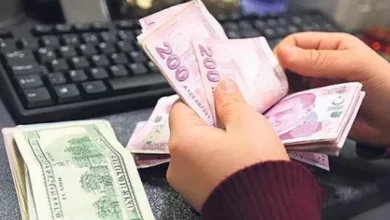Official CBN Bank Rates for Foreign Currencies in Nigeria
The Central Bank of Nigeria (CBN) is the apex financial institution in Nigeria, responsible for regulating the country’s monetary and financial systems. One of the core functions of the CBN is to manage the foreign exchange market in Nigeria by setting official bank rates for foreign currencies. This article aims to provide an overview of the official CBN bank rates for foreign currencies in Nigeria, its implications for the Nigerian economy, and the factors that influence these rates.
There have been some changes to the official CBN bank rates in recent times. In 2020, the CBN adopted a unified exchange rate regime, which aimed to eliminate the disparity between the official rates and the parallel market rates. Under the new regime, all forex transactions were to be conducted at a single exchange rate determined by the CBN.
The adoption of the unified exchange rate regime was a significant shift in the CBN’s approach to managing the foreign exchange market. However, there have been concerns about the effectiveness of the regime and whether it can address the challenges facing the foreign exchange market in Nigeria. For instance, some analysts have argued that the regime does not address the fundamental issues of market distortions and structural imbalances in the economy.
The CBN has also introduced several policies aimed at improving the supply of foreign exchange in the market. For instance, in 2020, the CBN launched the Nigerian Autonomous Foreign Exchange (NAFEX) window, which allowed investors and exporters to transact at market-determined rates. The introduction of the NAFEX window was seen as a significant step towards improving the transparency and efficiency of the foreign exchange market.
Despite these measures, the foreign exchange market in Nigeria continues to face several challenges. For instance, there is a persistent shortage of foreign exchange, which has led to an increase in the parallel market rates. There have also been concerns about the impact of the COVID-19 pandemic on the economy and the foreign exchange market.
Looking ahead, the CBN must continue to implement policies that promote the stability and efficiency of the foreign exchange market. This includes addressing the fundamental issues of market distortions and structural imbalances in the economy. The CBN must also work towards improving the supply of foreign exchange in the market, promoting transparency and efficiency, and ensuring that the foreign exchange market supports economic growth and development.
The official CBN bank rates for foreign currencies in Nigeria are critical for the country’s economy. The official rates are influenced by several factors, including demand and supply of foreign currency, economic performance, and political stability. While there have been some changes to the official rates in recent times, the foreign exchange market in Nigeria continues to face several challenges. As Nigeria continues to seek economic growth and stability, the CBN must continue to manage the foreign exchange market effectively and implement policies that promote transparency, efficiency, and stability.
What are Exchange Rates?
Exchange rates are the value of one country’s currency in relation to another country’s currency. It determines how much of one currency can be exchanged for another. The exchange rate is influenced by several factors, including inflation rates, interest rates, political stability, economic performance, and market speculation. Exchange rates can be classified into three types: floating exchange rates, fixed exchange rates, and managed exchange rates.
Official CBN Bank Rates
The official CBN bank rates refer to the exchange rates set by the Central Bank of Nigeria for foreign currencies. These rates are used by authorized dealers, banks, and other financial institutions in the country to conduct foreign exchange transactions. The CBN uses a managed exchange rate regime, which allows it to intervene in the market when necessary to maintain price stability.
The official CBN bank rates differ from other rates in the market, such as parallel market rates, which are determined by the forces of demand and supply in the market. These parallel market rates are often higher than the official rates due to factors such as market speculation, scarcity of foreign exchange, and illegal activities.
What are the official CBN bank rates in Nigeria Today?
Convert to other currencies from the Naira. The official CBN bank rates are listed below:
CBN Exchange Rates
| Currency | Sell / Buy Rate | Change | Date |
|---|---|---|---|
| USD | ₦ 460.94 / 459.94 | 0.00% | 15/03/2023 |
| EUR | ₦ 488 / 486.94 | -1.34% | 15/03/2023 |
| GBP | ₦ 556.45 / 555.24 | -0.93% | 15/03/2023 |
| ZAR | ₦ 25.09 / 25.03 | -1.22% | 15/03/2023 |
| RMB | ₦ 66.76 / 66.62 | -0.40% | 15/03/2023 |
| JPY | ₦ 3.46 / 3.45 | 0.62% | 15/03/2023 |
| XOF | ₦ 0.75 / 0.73 | 0.28% | 15/03/2023 |
| SAR | ₦ 122.72 / 122.45 | -0.02% | 15/03/2023 |
| WAUA | ₦ 615.76 / 614.43 | 0.10% | 15/03/2023 |
| CHF | ₦ 499.45 / 498.36 | -1.24% | 15/03/2023 |
| DKK | ₦ 65.54 / 65.39 | -1.33% | 15/03/2023 |
Implications of CBN Bank Rates
The official CBN bank rates have several implications for the Nigerian economy. One of the key implications is that it affects the value of the naira, the country’s currency. When the official rates are high, it means that more naira will be required to buy a unit of foreign currency, leading to a depreciation of the naira. A depreciated naira has implications for inflation, as it can lead to an increase in the prices of goods and services in the country.
The official CBN bank rates also affect businesses and individuals who engage in foreign exchange transactions. For instance, importers who rely on foreign currency to purchase goods and services will be affected by the official rates. When the official rates are high, it means that they will need more naira to purchase the same amount of foreign currency, leading to higher costs for them.
Factors that Affect CBN Bank Rates
Several factors influence the official CBN bank rates. One of the key factors is the demand and supply of foreign currency in the market. When there is high demand for foreign currency, the official rates are likely to increase, and when there is a surplus of foreign currency, the rates may decrease.
Another factor that influences the official CBN bank rates is the country’s economic performance. A country that has a strong and stable economy is likely to attract foreign investment, leading to an increase in the supply of foreign currency, which can lead to a decrease in the official rates.
The country’s political stability is also a factor that can affect the official CBN bank rates. Political instability can lead to a decline in foreign investment, leading to a decrease in the supply of foreign currency, which can lead to an increase in the official rates.
Frequently asked questions about the official CBN bank rates for foreign currencies in Nigeria:
What are the official CBN bank rates for foreign currencies in Nigeria?
The official CBN bank rates for foreign currencies in Nigeria are the exchange rates at which the Central Bank of Nigeria buys and sells foreign currencies to authorized dealers.
How are the official CBN bank rates determined?
The official CBN bank rates are determined by several factors, including demand and supply of foreign currency, economic performance, and political stability.
What currencies can be exchanged at the official CBN bank rates?
The CBN bank rates apply to a wide range of foreign currencies, including the US dollar, the Euro, the British pound sterling, and the Japanese yen.
Can individuals and businesses access the official CBN bank rates?
Individuals and businesses can access the official CBN bank rates through authorized dealers, such as commercial banks and bureau de change operators.
What is the difference between the official CBN bank rates and the parallel market rates?
The parallel market rates are the rates at which foreign currencies are bought and sold in the informal or black market. These rates are usually higher than the official CBN bank rates, and they reflect the demand and supply of foreign currency in the parallel market.
Can the official CBN bank rates change?
Yes, the official CBN bank rates can change depending on several factors, including changes in economic conditions, political stability, and demand and supply of foreign currency.
What are the challenges facing the foreign exchange market in Nigeria?
The foreign exchange market in Nigeria faces several challenges, including a persistent shortage of foreign exchange, market distortions, structural imbalances in the economy, and the impact of the COVID-19 pandemic.
What policies has the CBN implemented to address the challenges facing the foreign exchange market in Nigeria?
The CBN has implemented several policies to address the challenges facing the foreign exchange market in Nigeria, including the adoption of a unified exchange rate regime, the introduction of the Nigerian Autonomous Foreign Exchange (NAFEX) window, and the implementation of measures to improve the supply of foreign exchange in the market.
Conclusion
In conclusion, the official CBN bank rates for foreign currencies in Nigeria are critical for the country’s economy. It affects the value of the naira, businesses, and individuals who engage in foreign exchange transactions. The official rates are influenced by several factors, including demand and supply of foreign currency, economic performance, and political stability. As Nigeria continues to seek economic growth and stability, the CBN must continue to manage the foreign exchange market effectively.
It is also essential for the CBN to maintain transparency in its exchange rate policies to promote investor confidence and attract foreign investment. The CBN must also continue to implement measures to curb illegal activities in the parallel market, which can undermine the effectiveness of its exchange rate policies.
Looking forward, the CBN must remain vigilant and responsive to external shocks, such as global economic downturns and fluctuations in oil prices, which can impact the country’s foreign exchange reserves and exchange rate policies. The CBN must also explore alternative ways to boost the country’s foreign exchange earnings, such as diversifying the economy and promoting non-oil exports.
In summary, the official CBN bank rates for foreign currencies in Nigeria play a crucial role in the country’s economy, affecting the value of the naira and businesses and individuals who engage in foreign exchange transactions. The CBN must continue to manage the foreign exchange market effectively, maintain transparency in its policies, and be responsive to external shocks. By doing so, the CBN can promote economic growth and stability and improve the well-being of Nigerians.
